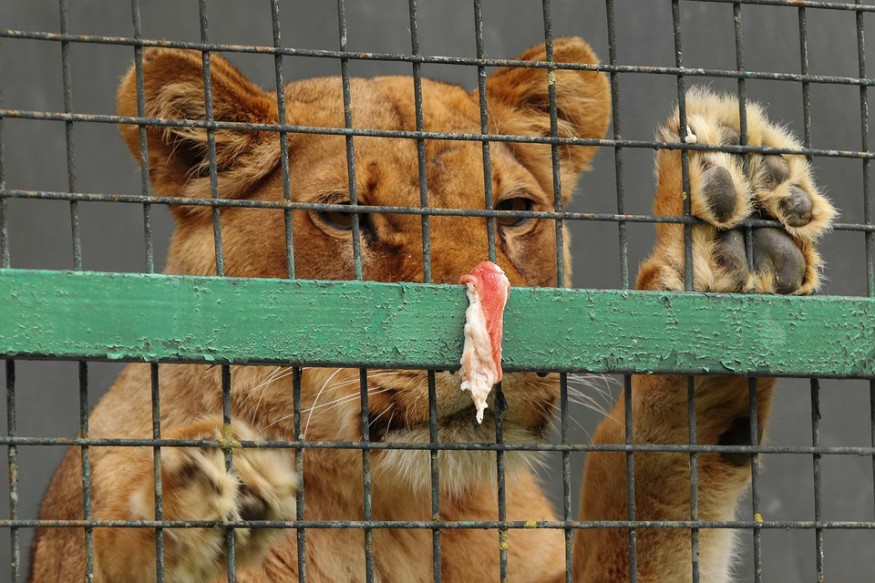The House of Representatives passed the Big Cat Public Safety Act (H.R. 1380) last week. The bill aimed to protect big cats in the US by limiting and banning private possessions of tigers, lions, leopards, jaguars, cougars, cheetahs, and any hybrids of these species. The bill also prohibits public interaction with big cats, including cub petting and selfie photo ops.
The big cat problem in the US

It is estimated that there are 10,000 to 20,000 big cats kept as pets by private owners in the US, or as roadside zoo attractions. Many of these big felines are living in squalor cages and are malnourished. Some of them are beaten to perform, and some are slaughtered or sold for parts as they grow out their cute cub phase which the owners rake money for cub petting acts.
The cruelty that big cats in private possession and at roadside zoos is alarming.
READ: Owner Mauled To Death by 400lb White Lions, Plus 5 Other Cases of Pets Killing Their Owners
The practice of cub petting led to a mass breeding of tigers with numerous animal welfare violations, unregulated trade, and slaughter of outgrown cubs.
Moreover, the dangers of humans living in close proximity or cohabitating with a 600-pound tiger has been widely documented. According to the Humane Society of United States, more than 400 dangerous incidents involving big cats in 46 states and in Columbia District have been reported.
Too often, when the animals break free, law enforcers and first responders face the dangers of these animals. It is for this reason that the Fraternal Order of Police, the National Sheriff's Association, several states, and local law enforcement agencies are the champions of the Big Cat Public Safety Act.
READ ALSO: Some Lions Are Living It up During the Worldwide Lockdown, Others Are in Serious Danger
The Big Cat Safety Act
The bill requires facilities to secure a federal permit for big cat ownership to provide a picture of where the captive tigers are in the US, who owns these cats and whether these animals are sold or traded, and to get more information on what happens to its valuable parts when it dies, Leigh Henry, Director of Wildlife Policy at World Wildlife Fund (WWF) said.
The lack of information on these big cats increases the possibility that these animals go undetected and eventually end up in the illegal wildlife trade, Henry said.
To prevent mass breeding of tigers, the unregulated trade and slaughter of cubs that has grown older and the animal welfare violations that come with cub petting, the Big Cat Public Safety Act would ban cub petting, in the hopes to lead to a dramatic decrease in big cat breeding and big cat exploitation.
The passage of the Big Cat Public Safety Act is a step closer to "ensuring these animals are treated humanely and to keeping the public safe from dangerous big cats," stated Rep. Quigley.
Rep. Mike Quigley, one of the bill's proponents hopes that the Senate will discuss this bill to the floor quickly so it becomes law next year.
READ NEXT: COVID-19: Zoo's Conservation Work at Risk of Closure Due to Funding Crisis
Check out more news and information on Zoo on Nature World News.
© 2026 NatureWorldNews.com All rights reserved. Do not reproduce without permission.





